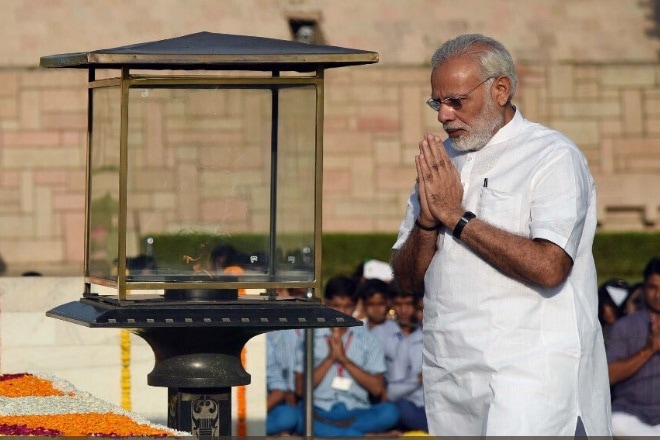Gandhi Jayanti: Cleanliness is not just the responsibility of government but all citizens, including those who work for the government. Mahatma Gandhi had a revolutionary vision about making India clean. ‘Revolutionary’, because he was probably the only tall leader of his time who realised that India’s emancipation was possible only through sanitation, not just independence. What is more, he did not just write about it but practised what he preached.
On the occasion of the birth anniversary of Mahatma Gandhi today, Prime Minister Narendra Modi said India will fulfill Mahatma Gandhi’s dream and for this all 125 crore citizens of the country will have to come together. “Swachh Bharat dream will not come true even if 1000 of Mahatma Gandhis, one lakh of Narendra Modis, all Chief Ministers and governments come together. It will be done by 125 crore Indians,” Modi said.
But, what was Gandhi’s clean India dream? It was not just about ensuring sanitation but also a vision about how people of the country can contribute towards this goal. In Gandhi’s India of My Dreams (compiled by R. K. Prabhu), the Father of the Nation noted how sanitation was then the most ignored thing in villages. “Divorce between intelligence and labour has resulted in criminal negligence of the villages. And so, instead of having graceful hamlets dotting the land, we have dungheaps. The approach to many villages is not a refreshing experience. Often on would like to shut one’s eyes and stuff one’s nose; such is the surrounding dirt and offending smell.”
It is ironic that many parts of rural India continue to be “dung heaps”, 70 years after independence.
Gandhi further said, “I regard this defect as a great vice which is responsible for the disgraceful state of our village and the sacred banks of the sacred rivers and for the diseases the spring from insanitation.”
The Mahatma rued that majority of Congressmen were not derived from villages. If this had happened, they would have helped in keeping villages clean. “If the majority of Congressmen were derived from our villages, as they should be, they should be able to make our villages models of cleanliness in every sense of the word,” he said.
Gandhi advised village workers to do cleanliness work themselves, “working like paid bhangis from day to day and always letting the villagers know that they are expected to join them so as ultimately to do the whole work themselves, they may be sure that they will find that the villagers will sooner or later co-operative.”
“The very first problem the village workers will solve is its sanitation. It is the most neglected of all the problems that baffle workers and that undermine physical wellbeing and breed disease,” Gandhi said.
The ideal village, according to the Mahatma, “will be so constructed as to lend itself to perfect sanitation.”
Gandhi highlighted that sanitation was not just an issue in rural India. But it affected urban centres as well. He had radical advice for the rich residents, municipal councillors as well as general people.
“It is not enough that we clear the villages which are occupied by our Parish brethren. They are amenable to reason and persuasion. Shall we have to say that the so called higher classes are not equally amenable to reason and persuasion and to hygienic laws which are indispensable in order to live a city-life?,” Gandhi said.
The Father of the Nation said that municipal councilors should be imbued with a real spirit of service so that they “will convert themselves into unpaid sweepers, bhangis and road-makers, and take a pride in doing so.”
For those who defecate in the open, Gandhi’s message was sharp and clear. “Leaving night-soil, cleaning the nose, or spitting on the road is a sin against God as well as humanity, and betrays a sad want of consideration for others. The Man who does not cover his waste deserves a heavy penalty even if he lives in a forest.”
Swachh Bharat Abhiyan was launched by PM Modi exactly three years ago to the day.


